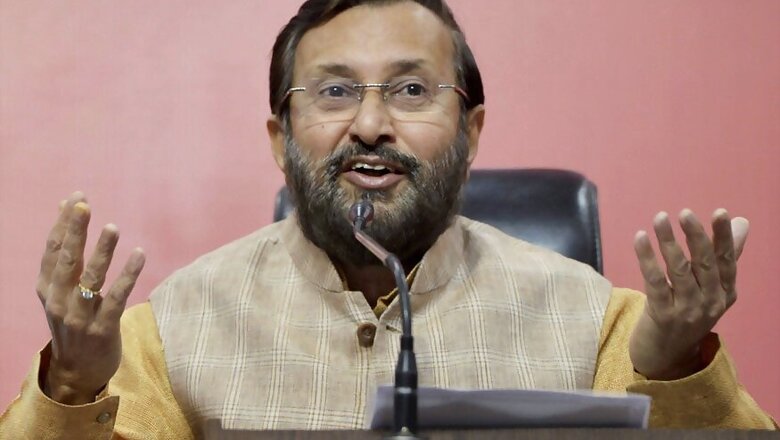
views
New Delhi: The Ministry of Human Resource Development has invited suggestions from the public on “rationalising school curriculum/syllabus/ subject contents for classes I to class XII” to reduce the burden on students.
The document has been uploaded on the MHRD website and public can submit suggestions till April 6.
"There is an urgent need to rationalise the school curriculum because the objective of education is to prepare a good human being. Along with academic education, life skills, experiential learning, physical education and creative skills are needed," HRD Minister Prakash Javadekar said.
"We need to develop a system where students get time for each of these and can progress in the areas which he or she likes most. Therefore, there is a continuous demand for rationalisation of the syllabus which many people believe is too heavy and inappropriate," he added.
Speaking to News18, National Council for Education and Research Training (NCERT) director Hrushikesh Senapathy said, “There is demand to reduce the load of the curriculum and once we start getting the reaction of the people the committee of experts will evaluate it. The responses will be analysed."
“There is complain of the curriculum being too loaded with information – we have to rationalize it. It is going to focus on developing a curriculum that makes good citizens out of students – they should be emotionally, physically stable. There should be space for creativity, play and studies,” he added.
Senapathy said that this is not the first time that NCERT has invited public suggestions. “When we wanted the NCERT textbooks to be reviewed we called for public suggestions, we have made modifications,” he said.
He added that the revised textbooks will be out by the end of March 2018 and will include modified texts on Maharana Pratap and Shivaji Maharaj. They will also include chapters on GST and demonetization.
Javadekar spoke about the curriculum load and said that NCERT syllabus “will be reduced in the coming two to three years”. He said that the idea emerged from six workshops held by the ministry as well as high level meetings with state education officials. A large number of NGOs, education experts, state government officers, headmasters and many teachers took part in these meetings, he said.
Javadekar said, “Plenty of information is not education and students are not just a data bank. The main aim of education is to bring out a good human being. It is the need of the hour to inculcate value education, life skills, experiential learning and physical fitness in our daily life.”

















Comments
0 comment